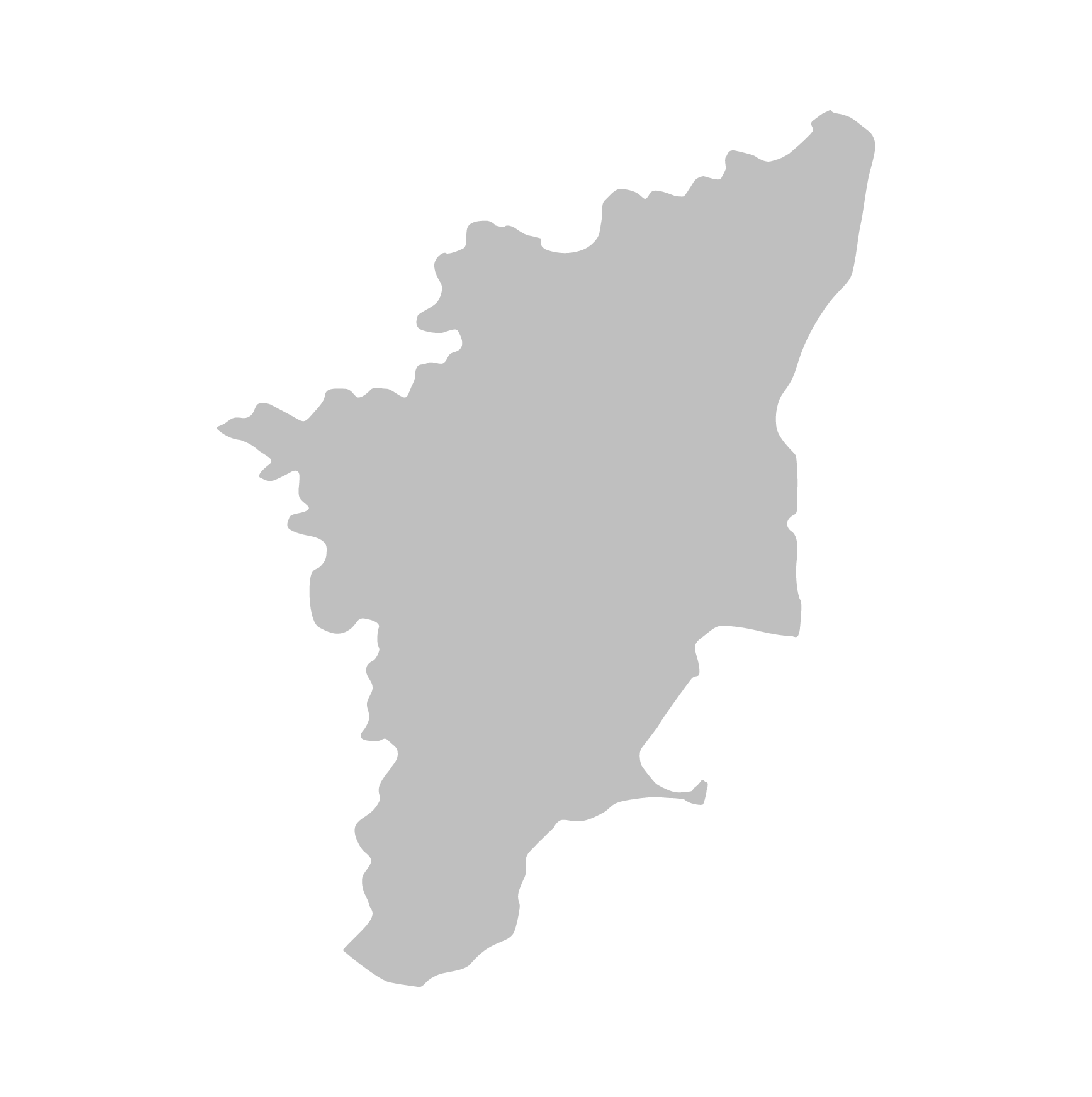Welfare Schemes
Sathiyavanimuthu Ammaiyar Ninaivu Free Supply of Sewing Machine
Free supply of Sewing Machine Scheme is being implemented by the Social Welfare and Nutritious Meal Programme Department, in order to enhance the income of widows, deserted wives, women from economically weaker sections, differently abled men and women, and socially affected women through self-employment.
The cloth for the Free Supply of Uniform Scheme is being supplied by the Department of Textiles and Handlooms to the 32 cutting centers functioning under the control of the Social Welfare Department. The cloth cut in the cutting centers are given to the concerned Tailoring societies for stitching the uniform and the stitched uniforms are delivered to the 413 AEEOs and 67 DEOs of the education department through these societies.
Tailoring Training Centers for Tribal Women
Women Tailoring Training Centers are functioning at Salem and Tiruvannamalai exclusively for the tribal women. In these centers, 35 tribal women are trained every year.
The cloth for the Free Supply of Uniform Scheme is being supplied by the Department of Textiles and Handlooms to the 32 cutting centers functioning under the control of the Social Welfare Department. The cloth cut in the cutting centers are given to the concerned Tailoring societies for stitching the uniform and the stitched uniforms are delivered to the 413 AEEOs and 67 DEOs of the education department through these societies.
Service Homes
Widows, deserted wives, economically backward women and girls rescued from child marriage who are neglected by their families are taken care of in the Service homes. Nine Government Service Homes, one each at Chennai, Salem, Cuddalore, Thanjavur, Tirunelveli, Sivagangai, Madurai, Krishnagiri and Perambalur are functioning in Tamil Nadu. The Service Homes provide suitable accommodation, food, health and medical facilities. The inmates can also pursue their schooling if they have discontinued their studies. The widows and deserted wives are also permitted to bring up their children in a conducive atmosphere in these Service Homes. A maximum of three children can be kept by a mother. While the Girl children are provided education upto XII Standard, male children are provided with the educational facility in the Service Home itself upto V Standard. Vocational skills are also provided to enable them to have economic sustainability. Life skills viz., computer training, spoken english and counseling for selection of higher studies and future career guidance are also provided in these homes.
Working Women Hostels
Opening up of new avenues of employment in urban areas has motivated many young women to take up employment away from their homes and cities. Due to the rise in prices and high rentals, the cost of living has gone up. Girls from poor and middle class families find it difficult to manage financially in their new places of employment with the meagre income they get. In order to help such working women, the Government runs 28 Working Women Hostels.
Administrative approval has been given to start 14 more new working women hostels. Women who earn upto `25,000 per month at Chennai and `15,000 per month in other places are eligible to get admission in these working women hostels. They have to pay a monthly rent of `300 in Chennai and `200 in other places. Sharing system is followed for food expenses, electricity and other charges. The staff salary is paid by the Government.
State Resource Centre for Women
The primary objective of SRCW is to work for holistic empowerment of women in the state cutting across sectors. It facilitates government and other stakeholders involved in women empowerment issues to implement Gender sensitive programmes, laws and schemes through effective coordination. SRCW regularly reviews and evaluates existing policies, programmes and legislations impacting women and bring suitable recommendations before the State Mission Authority (SMA) and National Resource Centre for Women (NRCW) for suitable measures. SRCW creates an environment through awareness generation to fuel demand by women for schemes/programmes and facilitates the process through which the gap between demand and supply can be reduced.
The State resource Centre for Women (SRCW) in Tamil Nadu has been established as per guidelines of National Mission on Empowerment of Women at the Commissionerate of Social Welfare. The Commissioner of Social Welfare is the Nodal Officer for SRCW. The staff of SRCW have been positioned and various activities of SRCW have been initiated from 27.01.2014.
For more information on schemes made available by the State government of Tamil Nadu for women, please visit
Schemes by State Governments for Girl Child
Sivagami Ammaiyar Memorial Girl Child Protection Scheme
The Scheme of Social Welfare and Nutritious Meal Programme Department, Sivagami Ammaiyar Memorial Girl Child Protection Scheme, provides financial assistance to girl children from poor families with not more than two girl children and no male child (biological or adopted). To be eligible for this scheme the family income should be below Rs.50,000 per annum. Application should be made before the beneficiary girl child completes 3 years of age. Either of the eligible parents should have also undergone sterilisation within 35 years.
More information on this scheme can be found here.
Chief Minister’s Girl Child Protection Scheme
The Chief Minister’s Girl Child Protection Scheme is a pioneering and path-breaking scheme for the welfare of girl children. The Girl Child Protection Scheme is aimed at preventing gender discrimination by empowering and protecting rights of girl Children through direct investment from Government.
The scheme aims to:
- Promote enrollment and retention of the girl child in school and to ensure her education at least up to intermediate level.
- Encourage girls to get married only after the age of 18 years.
- Encourage parents to adopt family planning norms with two girl children.
- Protect the rights of the girl child and provide social and financial empowerment to girl child.
- Strengthen the role of the family in improving the status of the girl child.
More information on this scheme can be found here.




